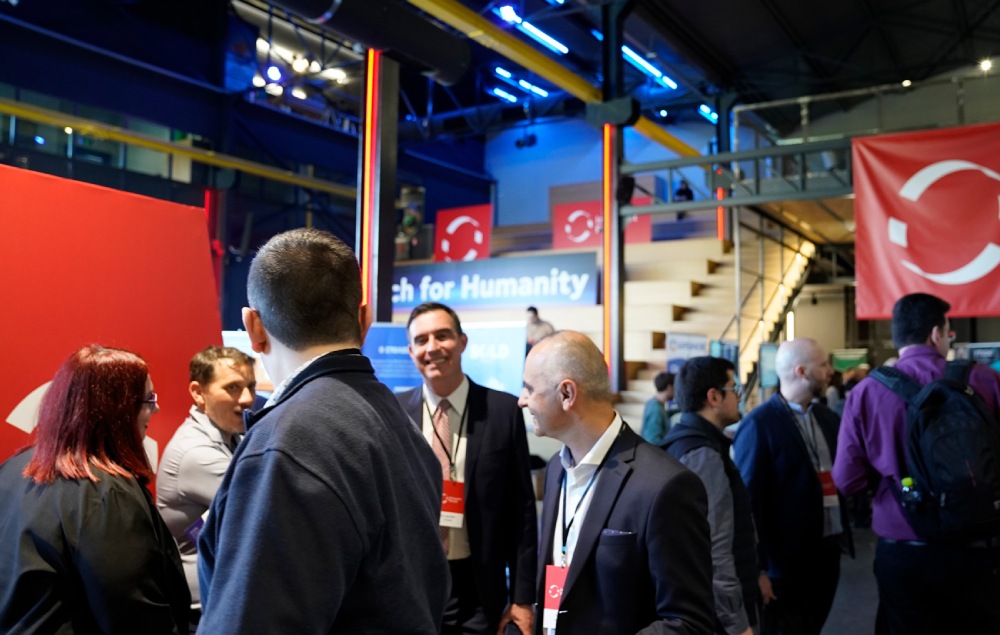The first day of the two-day hybrid Science & Technology Event Innovent Forum 2024 was successfully wrapped up today at JOIST Innovation Park, with a dynamic agenda that explored the interconnection between technology and social good.
Thirty leading exhibitors with major innovations in education, environment and energy, society, public sector, health, arts and culture, smart cities and construction are showcasing their products and services. In parallel, a wide range of representatives from the academic, research and business community, the public sector and government gathered to discuss how technology can help us overcome some of the most critical societal challenges.
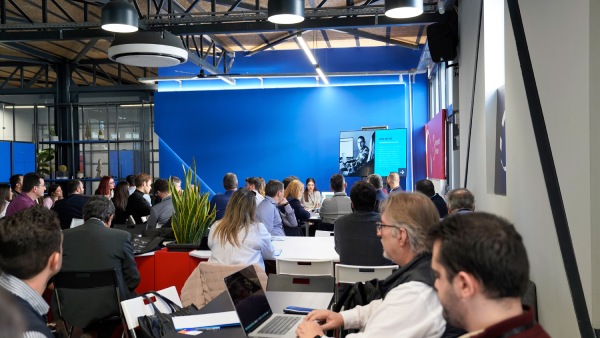
The day kicked off with a closed workshop, “EU Grant Networking Workshop: Building Consortia for Success”, designed to support participants in building consortia for competitive EU funding opportunities. The workshop, co-organised by iED Entrepreneurship Development Institute and JOIST Innovation Park, provided valuable insights and networking opportunities for researchers, entrepreneurs and organisations seeking to leverage EU national and EU grants for their innovative projects.
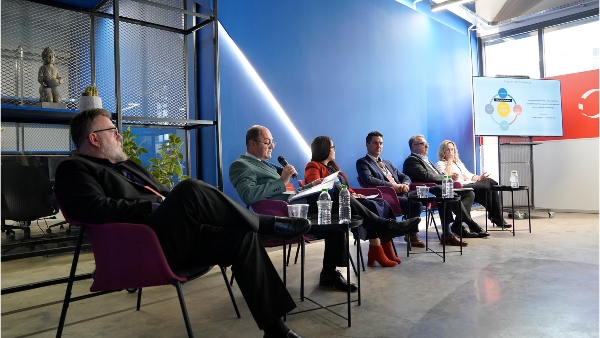
This was followed by a round table discussion entitled “Technology & Quality of Life”, which explored the impact of technology on quality of life. The discussion was moderated by Dr Chryssi Laspidou, Professor of the Department of Civil Engineering of the University of Thessaly and Vice President of Partnerships at Water Europe Bruxelles, with the participation of distinguished speakers, such as Dimitris Lakasas, CEO of Olympia Electronics, Malika Kebri, Deputy Director of Scientific Research & Programs at the National Council for Scientific Research & Technologies, Simeon Diamantidis, President of SEVE and CEO of Diopas S.A., Manuel Seuffert, Director του Kearney IMP³ROVE, Dr Stavros Pitoglou, Chief Technical Officer & Head of Research at Computer Solutions. The panel speakers presented ways in which technology is impacting our lives in a positive way, followed by several questions and interactions with the audience. In particular, Dimitris Lakasas focused on the critical role of people in Industry 4.0 and the benefits of digital transformation for countries with low productivity, such as Greece. Simeon Diamantidis then referred to the extroversion of Greek businesses, with special reference to the Region of Thessaly, stressing the need to reduce the technological gap between Greece and the European average and the importance of cooperation. Malika Kebri also shared her experience of the research sector in Algeria, which is low on the World Innovation Index, and the valuable assistance provided by EU research programmes such as PRIMA. Continuing, Manuel Seuffert, with a more pragmatic approach than the other speakers, focused on the multiple opportunities for business growth offered by the increase in technology and innovation and seemed more optimistic about the impact on employees. Finally, Stavros Pitoglou spoke about technology in the health sector and how it drives the future of personalised medicine.
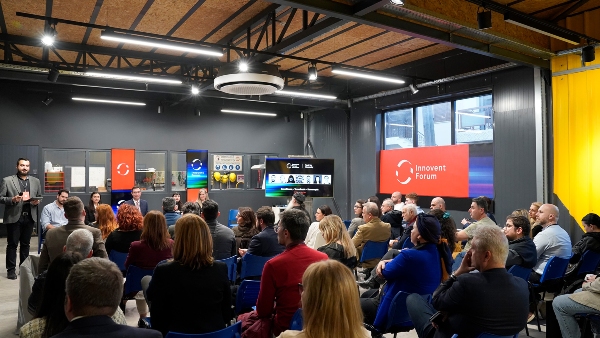
The discussions continued in the next roundtable discussion on “Education – Technology – Innovation“with the participation of academics and researchers from Greek Universities and Research Centres, educational platforms for skills upskilling and reskilling, representatives of European projects for upgrading digital skills, as well as people from the banking sector focusing on financing and developing innovative entrepreneurship.
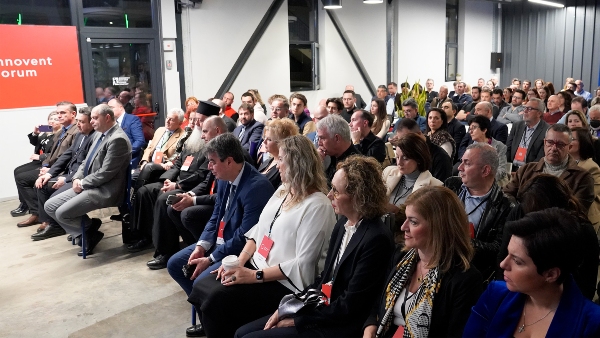
The last session, entitled “Technology & Natural Disasters: Prevention, Management, Recovery”, focused on the critical role of technology in mitigation and management of natural disasters and the need for human resources. The discussion, moderated by Dimitris Balis, a journalist for HuffPost, was attended by personalities from the country’s government leadership and local government, such as the Minister of Digital Governance Dimitris Papastergiou, the Deputy Minister of Development Maximos Senetakis, the Governor of the Region of Thessaly Dimitris Kouretas and the Mayor of Larissa Athanasios Mamakos.
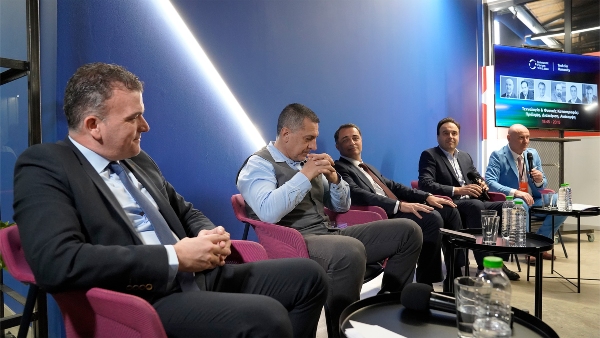
Dimitris Balis started the discussion by referring to the importance of this panel “Technology, natural disasters, prevention, management and recovery are the six words that will concern us in the near future.” Next, he was joined by Dimitris Papastergiou, talking about how technology has transformed the city of Trikala and its importance in cases of natural disasters such as storm Daniel. Continuing, Maximos Senetakis spoke about the contribution to innovation of initiatives such as JOIST Innovation Park, and the necessity to make better use of the technological products produced by the country’s university institutions. Also, Athanasios Mamakos focused on the need to have the necessary human resources, something that is hampered by the brain drain in Greece, which was agreed by the whole panel. He then stressed the importance of having clear responsibilities at the local and regional levels so that everyone knows their responsibilities in the next natural disaster. He said, “Our concern, everyone’s concern, apart from healing the wounds of those who have been severely tested, is obviously to ensure the resilience of the city, to strengthen its infrastructure and to protect its people and their properties.” The day was closed by Dimitris Kouretas, who spoke about the flood restoration work that has been done so far and still needs to be done, such as creating embankments, securing settlements, and restoring destroyed rivers, streams and schools. Finally, he said that it has been agreed to create KPIs for the better use of the Region’s resources for public works, for more transparency, noting that there is close cooperation with the University of Thessaly for this purpose.
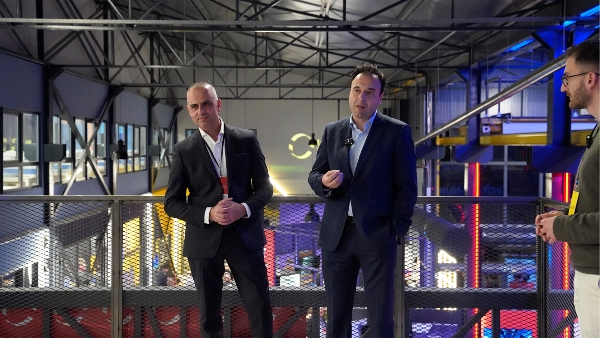
It is also important to note that throughout the day, dozens of business and research matchmaking meetings were organised, both in person and online, facilitating fruitful exchanges between researchers, businesses and investors, promoting networking, potential collaborations and strategic partnerships.
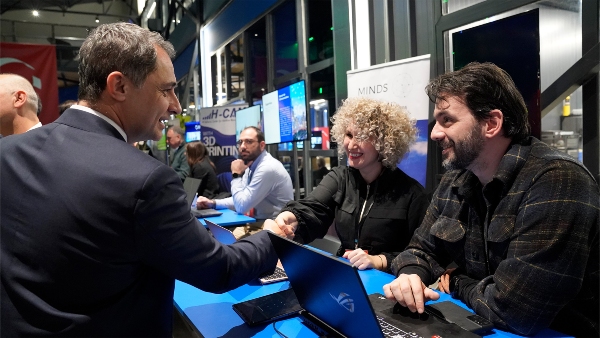
The event is organised by JOIST Innovation Park in collaboration with the University of Thessaly and the Region of Thessaly and is under the auspices of the Ministry of Digital Governance and the Ministry of Development. The gold sponsor of Innovent Forum 2024 is Exalco, and sponsors are Computer Solutions, Norma Group and Mikel Coffee.
The second day of Innovent Forum 2024 arrives tomorrow, Saturday, 10 February and promises further interesting discussions, networking opportunities and knowledge sharing. Registration starts at 9:30, and the first roundtable discussion is at 10:00, in person at the JOIST Innovation Park, Valtetsiou and Tripoleos in Larissa and online via live streaming.
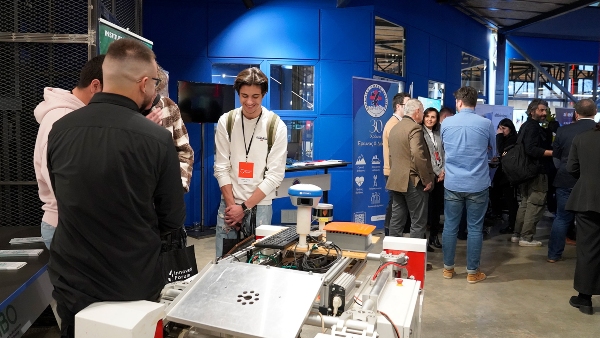
Admission for the public is free. For more information and updates, visit the official website: https://innoventforum.joistpark.eu/

